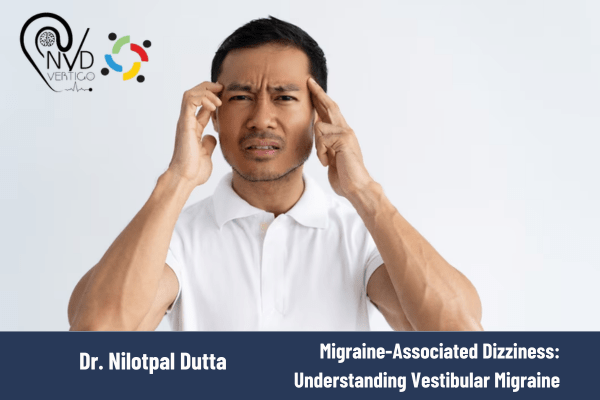Do you often experience dizziness and vertigo alongside your migraines? If so, you may be dealing with a condition called Migraine-Associated Dizziness, specifically Vestibular Migraine. In this blog post, Best Neuro-otologist in Kolkata talks about Vestibular migraines and provides insights into their symptoms, causes, and potential treatment options.
Understanding Vestibular Migraine:
Vestibular Migraine is a unique form of migraine disorder characterized by recurrent episodes of dizziness and vertigo. It is closely linked to the vestibular system, which contributes to our sense of balance and spatial orientation. During Vestibular Migraine episodes, the vestibular system becomes hypersensitive or dysregulated, leading to a variety of symptoms says Vertigo Specialist.
Recognizing the Symptoms:
The primary symptoms of Vestibular migraines include dizziness, vertigo (a spinning or whirling sensation), and a feeling of unsteadiness or imbalance. These symptoms often occur alongside or shortly before a migraine headache. Other common symptoms may include lightheadedness, difficulty concentrating, and even nausea or vomiting. It is important to note that not all individuals with Vestibular migraines experience migraines with aura or intense headache pain.
Diagnosing Vestibular Migraine:
Diagnosing Vestibular migraines can be challenging due to the overlapping symptoms with other conditions. If you suspect you have Vestibular Migraine, it is crucial to consult a healthcare professional, preferably a specialist in vertigo disorders. They will conduct a thorough evaluation, which may include a detailed medical history, physical examination, and potentially additional tests such as vestibular function testing or imaging studies.
Managing Vestibular Migraine:
According to Top Vertigo Specialist While there is no cure for Vestibular migraines, there are various strategies to manage and reduce the frequency and severity of episodes. Treatment typically involves a combination of lifestyle modifications, medication management, and vestibular rehabilitation exercises. Lifestyle modifications may include identifying and avoiding triggers such as certain foods, stress, or lack of sleep. Medications prescribed for Vestibular migraines can include preventive medications, pain relievers, or anti-nausea medications. Vestibular rehabilitation exercises, under the guidance of a trained professional, can help improve balance and reduce dizziness symptoms.
Seeking Professional Guidance:
When dealing with Migraine-Associated Dizziness or Vestibular migraines, it is essential to seek guidance from a healthcare professional experienced in managing vertigo disorders. They will be able to provide an accurate diagnosis, develop a personalized treatment plan, and offer support throughout your journey.
In conclusion, if you experience dizziness, vertigo, and other associated symptoms alongside your migraines consult the Best Vertigo Specialist in Kolkata, it may be indicative of Vestibular migraines. Understanding the condition and seeking appropriate care can significantly improve your quality of life.




